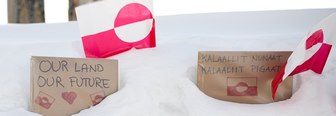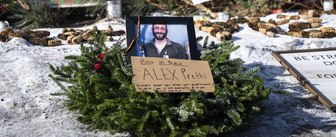As America’s big freeze begins to thaw, attention turns to why the US began this year with record low temperatures and winter storms. As all 50 states dropped below freezing, with polar conditions in the eastern half of the US, 50% of younger Americans are blaming climate change for the cold conditions.
Americans over 55, by contrast, are much more skeptical – 31% of those aged 18 to 34 say the winter storms were not caused by climate change, while 52% of over-55s say climate change didn’t cause the big freeze.
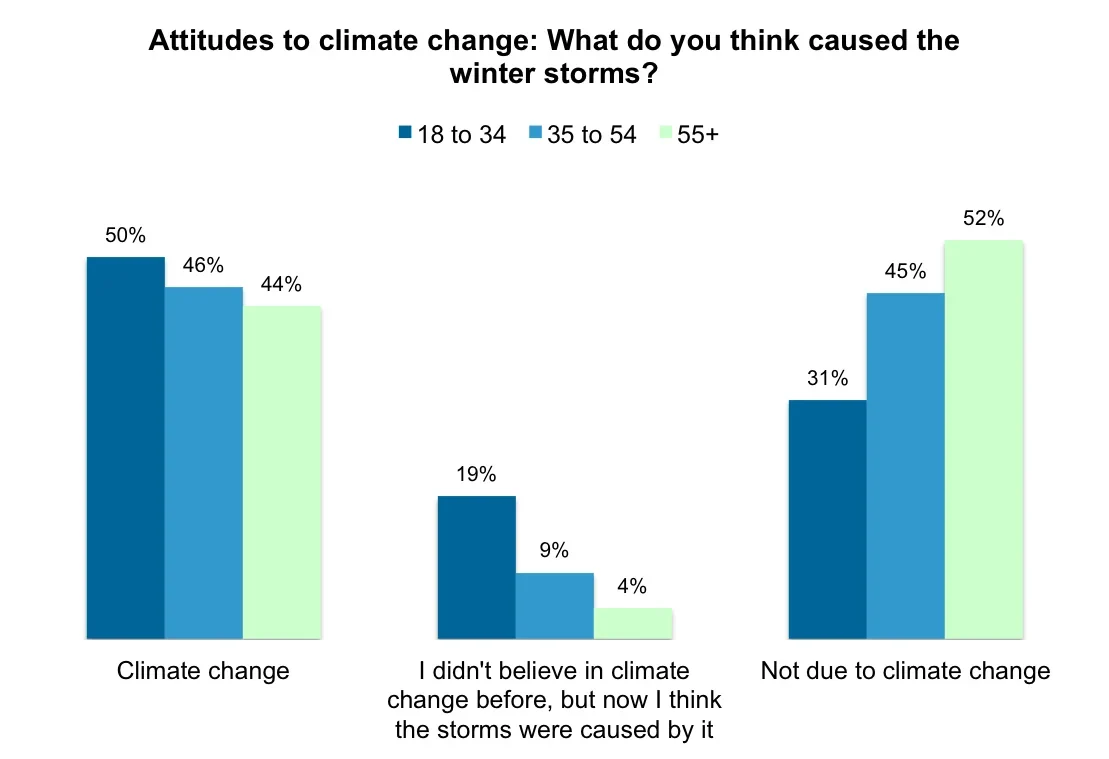
Attitudes to climate cahnge are not the only difference among age groups when it comes to being aware of the weather – how we access weather information also changes according to age. Younger people are much more likely to go online to check the weather, or rely on family and friends by word of mouth or social media. While around 21% of 18-34 year olds use social networking sites like Facebook and Twitter to get a weather update, just 7% of over-55s would do the same. Over-55s responded they were more likely to turn their television set on or read a newspaper to get access to the latest weather.
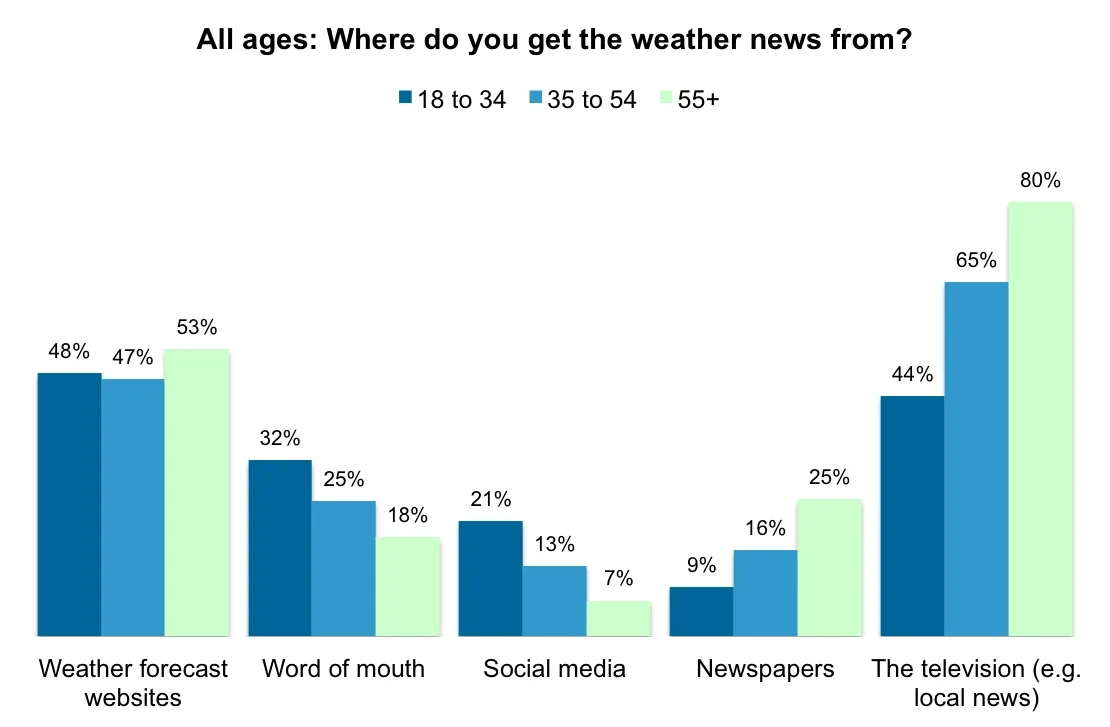
Television trumps all other sources as a means to informing the US public of the weather, with 65% of Americans tuning in. This is good news for the Weather Channel, which has been attaching names to winter storms for the past two years.
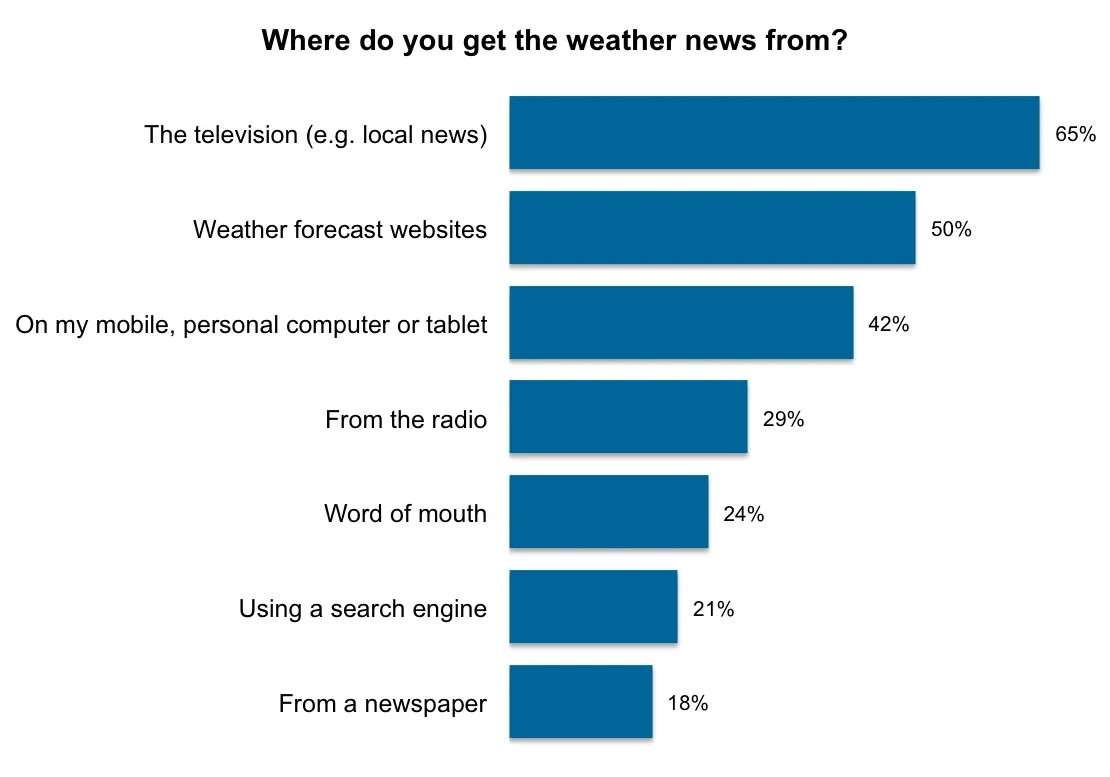
Half of Americans (53%) trust the weather reports they receive, while 28% of the nation only trusts what they hear half of the time, and just 4% trust weather reports completely. Younger people (6% of 18-34s) are more likely than over-34s (3% of this age group) to completely trust the weather reports they hear, see or read.
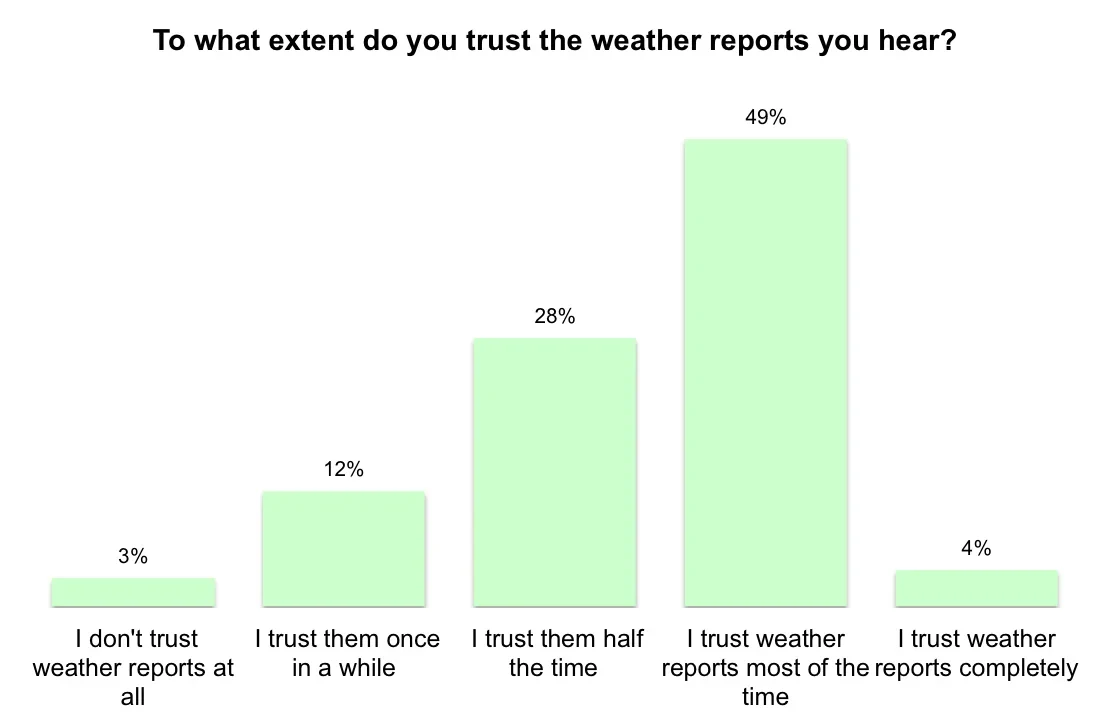
The Weather Channel has been naming winter storms that fit certain criteria – with storms such as Atlas, Boreas, Cleon, Dion, Electra and Falco affecting parts of the US through 2013 and 2014. More than one in ten (12%) of Americans think the channel is wrong to name winter storms, saying this trivializes the dangers of hurricanes, which are named by the National Weather Service.
While the National Weather Service does not give names to winter storms, the Weather Channel said naming each storm makes it easier for the network to communicate information, such as by creating storm hashtags for distributing updates via Twitter. 28% of Americans agreed, saying that naming winter storms made it easier to refer to the storm. 17% of Americans said naming winter storms heightened public awareness of potentially dangerous weather conditions. The 2012 to 2013 storm – dubbed ‘Nemo’ by the Weather Channel – created more than 1bn impressions on Twitter the previous winter. The winter storm names for 2013 to 2014 were devised by students at Bozeman High School in Montana, as an assignment in Latin class, and are primarily drawn from Greek and Roman mythology.
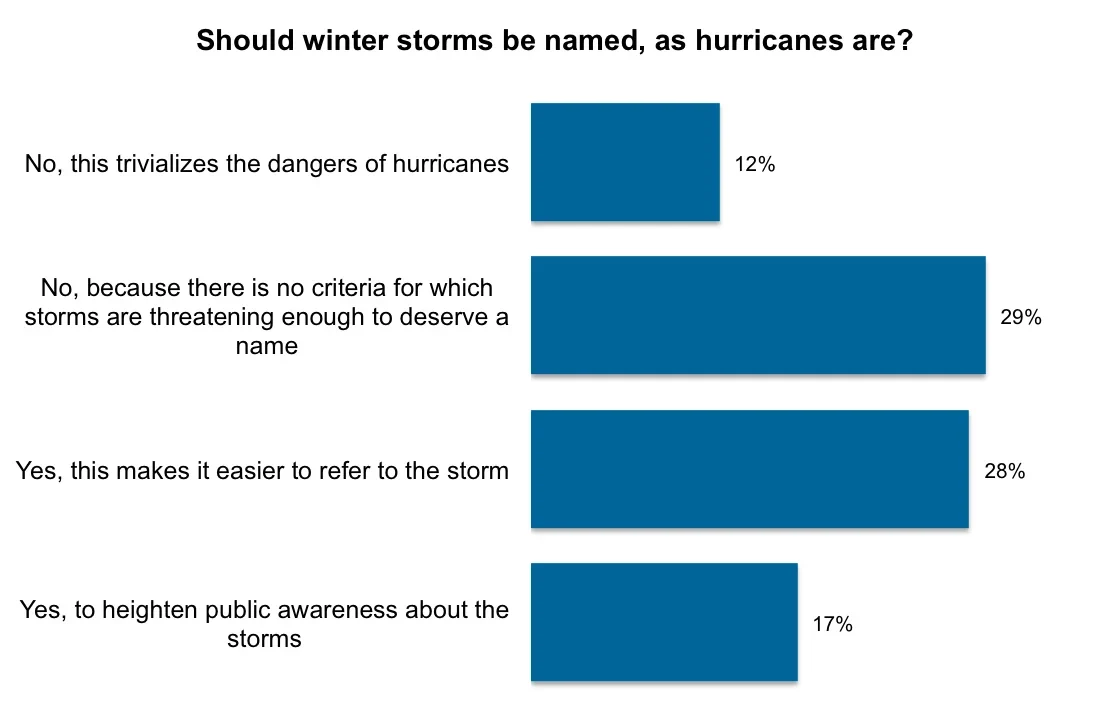
When asked how their local area deals with snowy weather conditions, 21% of Americans said their community deals very well with the snow. 24% also thought their community dealt somewhat well with the snow. This outnumbers the 12% who believed their area deals somewhat poorly with the snow, and 11% of Americans who thought where they live deals very poorly with the snow.
Car accidents are seen as the biggest problem among Americans who believed their community is ill-equipped to deal with the snow. Sidewalks, streets and roads made dangerous by unshoveled snow has also been seen as an issue by these Americans, while people panicking and businesses closing are also polled as problems.
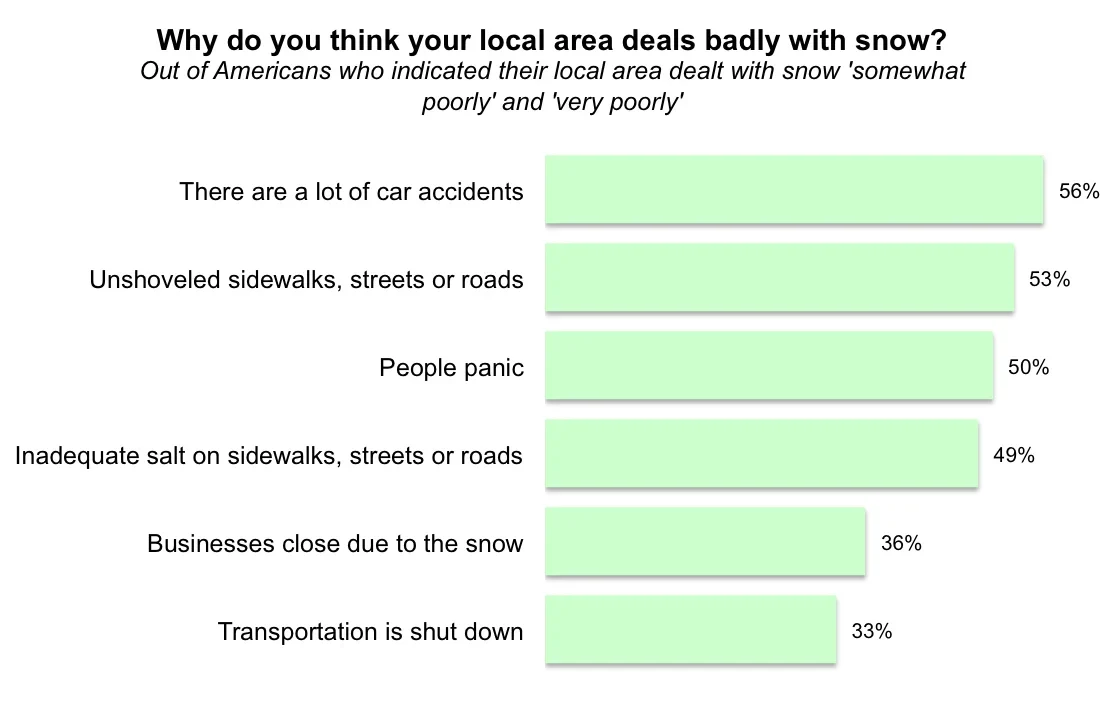
For further information about poll results, and for details about methodology and omnibus services, please email omnibus.us@yougov.com.
Find the full results here.
Image: Getty






